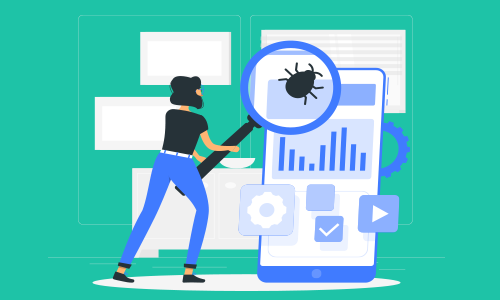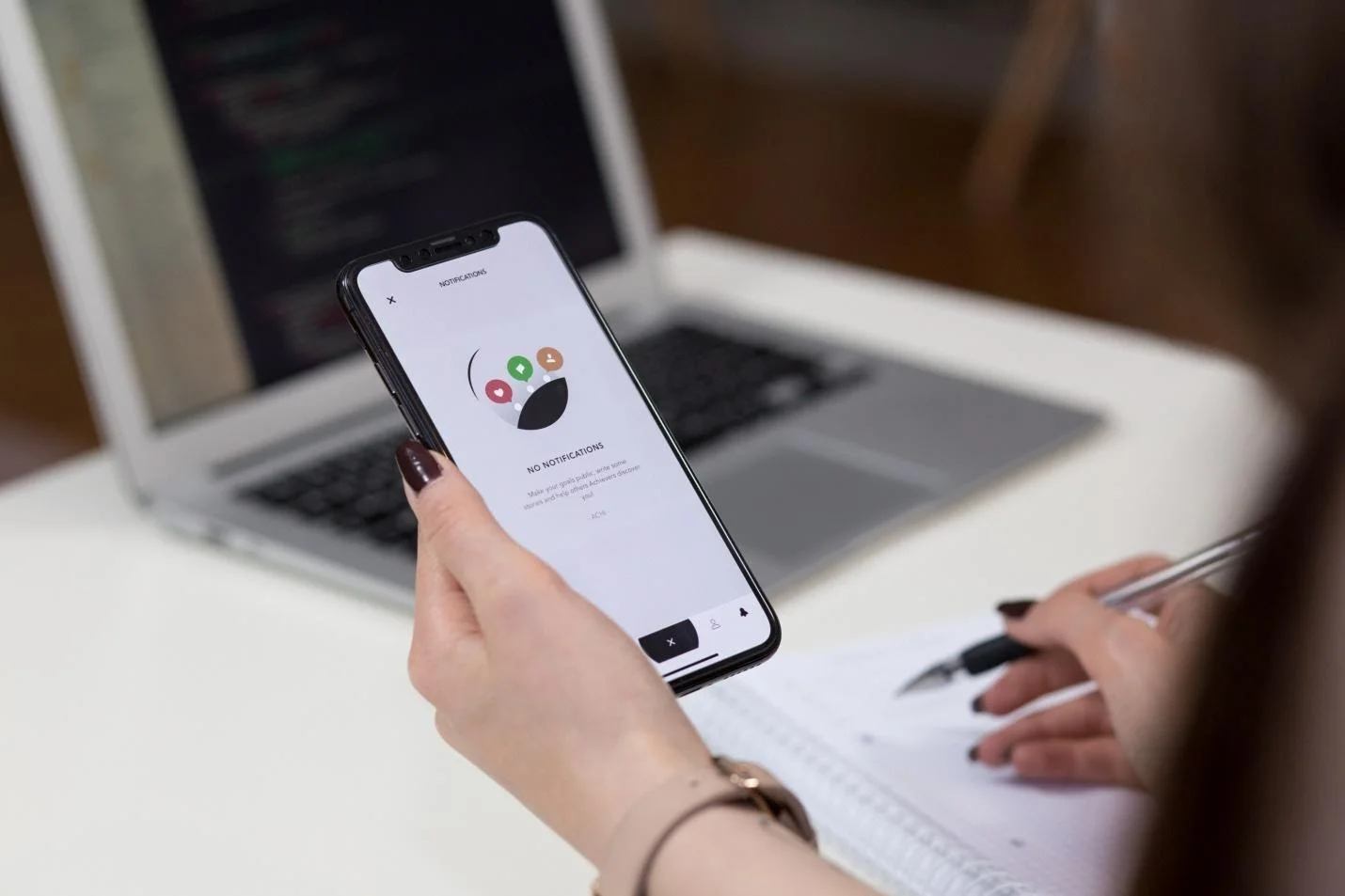Mobile App Testing Services
Testing quality mobile apps rapidly & with assurance.

With nearly a decade in mobile testing, Etelligens has honed its approach to mobile app testing across various domains—Insurance, Banking, Retail, Travel, and more. We understand that each mobile app testing scenario demands rigorous verification of functionality, usability, security, API integrity, and performance. Our QA experts ensure consistent quality, impeccable performance, and robust security, including mobile app API testing, mobile app penetration testing, and mobile app performance testing. By partnering with us, businesses confidently launch apps that deliver exceptional user experiences and meet strict industry standards.
Our End-to-End Mobile App Testing Services
Offering In-Depth and Wide Expertise in Mobile App Testing.

App Functional Testing

Memory Leakage Testing

App Performance Testing (Load, Stress, Endurance)

App Security Testing

Mobile Interrupt Testing

App Installation Testing

App Usability Testing

Operational Testing

App Compatibility Testing

Mobile App API Testing

Mobile App Penetration Testing

iOS Mobile App Testing
Why Choose Etelligens for Mobile App Testing?
Our QA team provides mobile app testing services across all verticals, ensuring:
- Expert testers skilled in diverse mobile platforms (iOS, Android) and app types (web, native, hybrid).
- Latest methodologies and tools for automation, API validation, performance profiling, and security scanning, reducing bugs and time-to-market.
- Strategic approach to align testing scope with client objectives, ensuring efficient resource use and maximum ROI.
- Proven experience in automating tests for complex mobile solutions, cutting test cycles and accelerating delivery.
- A deep understanding of target user behaviors and compliance standards, enabling hi-tech services that drive business growth and brand trust.
Ensuring Comprehensive Coverage: From APIs to Security and Beyond
Beyond functional checks, robust mobile app quality involves multiple layers of verification:
Deep-Dive Mobile App API Testing
Our testers validate API endpoints under various network conditions, ensuring correct data formats, authentication, and error handling. We use tools and frameworks to simulate real-world API loads and swiftly detect integration issues.
Penetration Testing for Security Assurance
We apply industry best practices (e.g., OWASP Mobile Security Testing Guide) to simulate attacker scenarios. This includes scanning for injection flaws, insecure data storage, and weak encryption. Our findings guide remediation efforts, reinforcing user trust and regulatory compliance.
Advanced Mobile App Performance Testing
By employing specialized performance test tools, we measure response times, throughput, resource usage, and battery impact. We identify bottlenecks early and optimize code and infrastructure to maintain smooth performance under peak loads.
Focused iOS Mobile App Testing
For iOS apps, we leverage Apple’s TestFlight, test on multiple iOS versions and devices, and ensure compliance with Apple’s guidelines. This approach results in intuitive UI, fluid performance, and minimized app store rejections.
By incorporating these targeted testing strategies, we help clients deliver stable, secure, high-performing mobile experiences tailored to their audience’s expectations.
Frequently Asked Questions
1. What is mobile app penetration testing, and why is it essential for security?
Mobile app penetration testing simulates real-world attacks to identify security flaws before they’re exploited. This involves examining authentication, data storage, network communication, and code-level vulnerabilities. As mobile apps handle sensitive data, untested apps risk data breaches, account takeovers, financial fraud, and compliance violations. OWASP reports 83% of mobile apps have at least one security issue. Etelligens uses NIST-compliant methods to ensure your app is protected against both common and advanced threats, maintaining compliance and user trust.
2. Why is mobile app performance testing a critical aspect of the development process?
Mobile app performance testing ensures your app runs smoothly across devices, networks, and user loads. It detects issues like slow response times, memory leaks, and excessive battery use. Google research shows that 53% of users abandon apps taking over 3 seconds to load. Early testing cuts costs and boosts retention. Etelligens integrates performance testing throughout development, ensuring consistent responsiveness and reliability across real-world conditions, enhancing user satisfaction and business outcomes.
3. What is the significance of API testing in the context of mobile application development?
API testing ensures seamless, secure, and reliable communication between mobile apps and backend services. It validates data integrity, business logic, and API performance under various scenarios. Research shows API issues cause 40% of app crashes. Etelligens uses automated API testing frameworks to simulate thousands of scenarios, ensuring robust data exchange and supporting scalability, security, and fast development cycles for dependable app functionality.
4. What are the essential tools and frameworks for conducting comprehensive iOS mobile app testing?
Effective iOS app testing requires tools like XCTest, Appium, and EarlGrey for functional testing; Instruments and Xcode APIs for performance; and MobSF and Needle for security. Device coverage includes real devices via BrowserStack and TestFlight. With Apple’s fast OS updates, failing to test thoroughly can lead to higher App Store rejection. Etelligens uses these tools strategically to meet Apple’s standards and ensure seamless user experiences.
5. What are the most common security vulnerabilities targeted in mobile app penetration testing?
Penetration testing targets common mobile threats like insecure data storage, weak authentication, unsafe communication, client-side injections, and poor cryptography. These issues can lead to data leaks, account hijacking, and code tampering. OWASP and Positive Technologies highlight insecure data storage as most prevalent. Etelligens combines automated tools with manual testing to detect and remediate such vulnerabilities, aligning with NIST and OWASP standards to protect user data and brand integrity.
6. What are the key performance metrics that should be measured during mobile app testing?
Key metrics include response time (launch time, API speed), resource usage (CPU, memory, battery), stability (crash rates, ANR), and UX metrics (TTI, scroll lag). Network-specific metrics like data sync and offline capabilities also matter. Google reports a 27% boost in conversions when load time improves by 1 second. Etelligens integrates these metrics into automated suites, helping identify and resolve issues early while improving app performance and reliability.
7. Which tools are most effective for conducting comprehensive mobile app API testing?
Effective API testing tools include Postman, REST Assured, and Swagger Inspector for functional tests; JMeter and k6 for performance; OWASP ZAP and Burp Suite for security. Debugging tools like Charles Proxy and Fiddler help monitor API traffic. According to SmartBear, 57% of teams use three or more tools for coverage. Etelligens combines these with custom frameworks to ensure secure, scalable, and efficient API performance throughout development.
8. What are the best practices for testing an iOS app across various devices and iOS versions?
Best practices include testing on top-selling iPhones across screen sizes and iOS versions, focusing on current and previous iOS releases. Use both physical devices and simulators, and cloud platforms like BrowserStack for extended coverage. Automate with XCUITest and Appium, and test real-world scenarios like poor connectivity and interruptions. Etelligens builds efficient device matrices based on analytics to maximize test coverage while optimizing resources.
9. How frequently should penetration testing be conducted on a mobile application?
Penetration testing should be done before major releases, after key updates, and at least annually. For sensitive apps, quarterly testing is advised. Industries like finance or healthcare may require even more frequent tests. Etelligens recommends a hybrid approach: automated scans via CI/CD pipelines, plus scheduled in-depth tests, ensuring compliance and continuous protection per NIST guidelines. Regular testing reduces incident risks by over 60% (Ponemon Institute).
10. Which tools are commonly used for conducting mobile app performance testing?
Common tools include Android Profiler, Xcode Instruments, Firebase Performance, New Relic, AppDynamics, and Dynatrace. For automation and load testing, teams use JMeter, Appium, Gatling, and HeadSpin. Kobiton reports 76% of teams use multiple tools for full visibility. Etelligens tailors testing strategies using the right mix of tools for each app, integrating them into the pipeline to monitor real-world performance and enhance user experience consistently.

